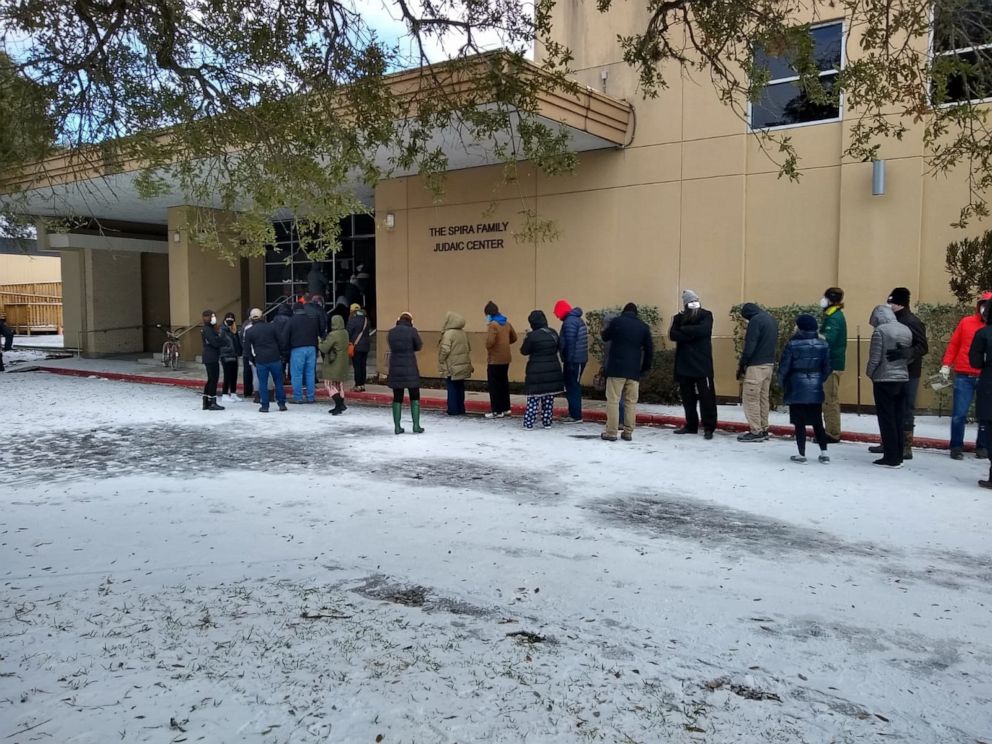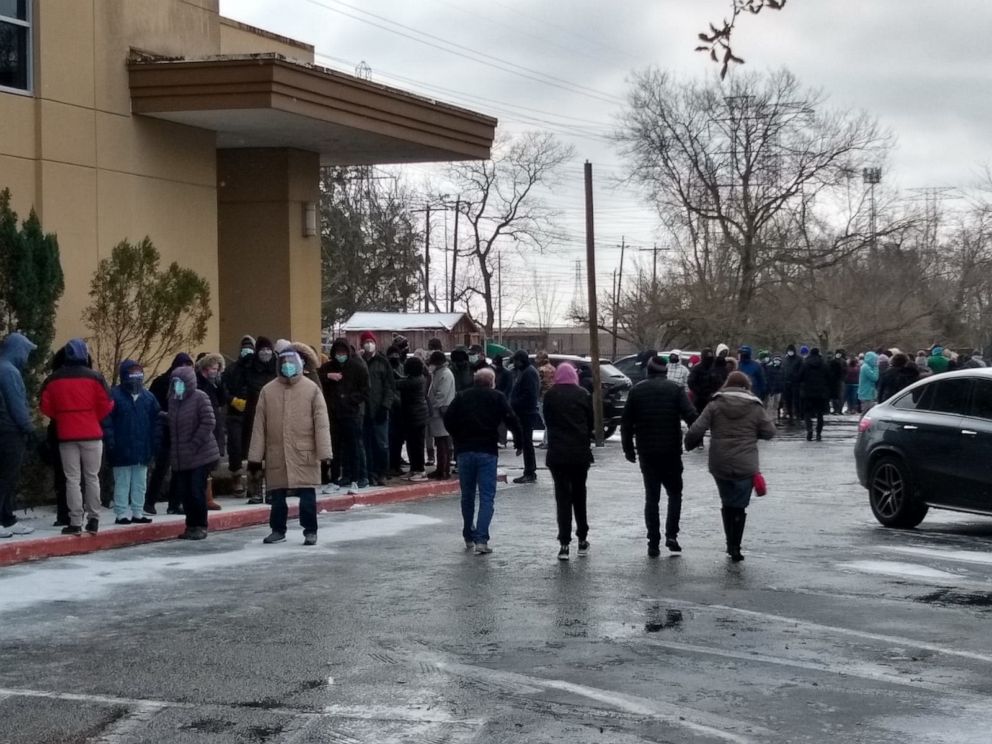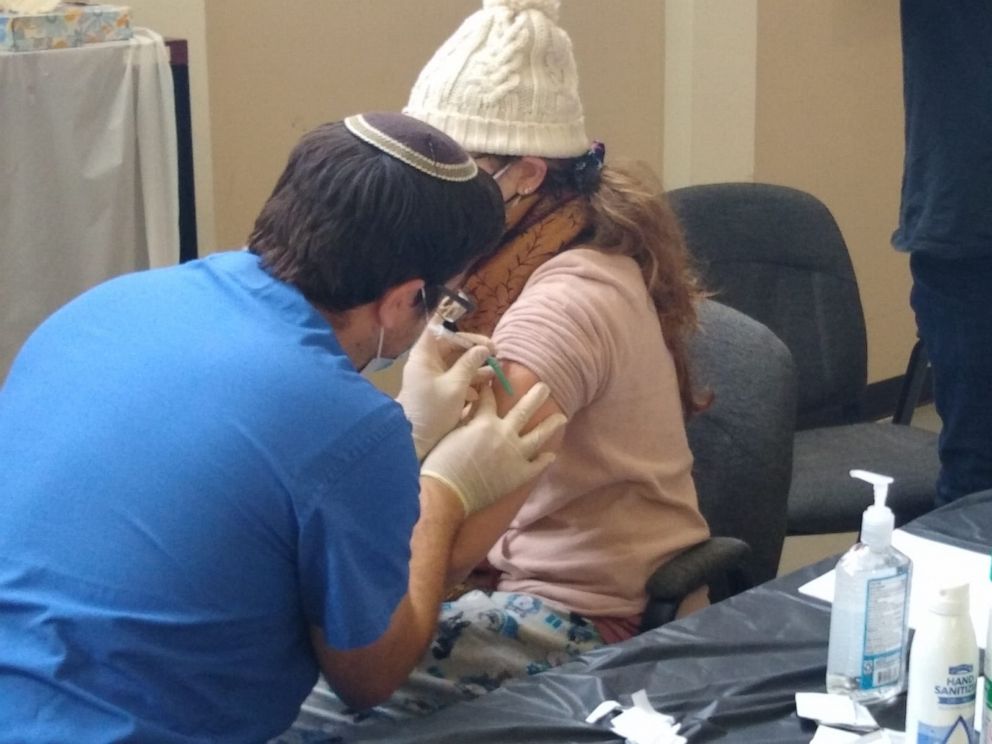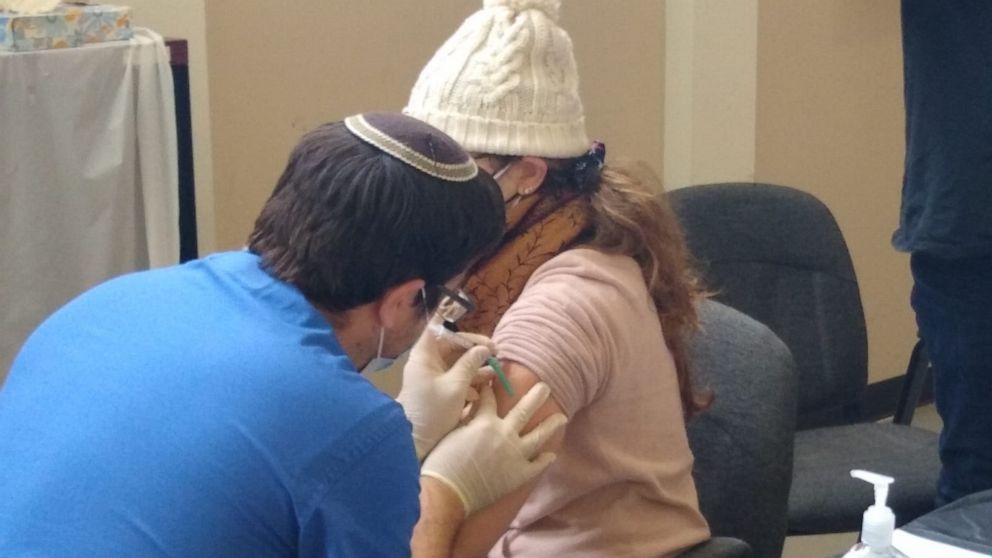How a Texas synagogue got hundreds vaccinated after power outages threatened doses
After an unprecedented winter storm cut off power to the freezers storing vaccines in Harris County, Texas, thousands of doses were at risk of expiring within hours. Alan Hoffman, an internist at Houston Methodist Hospital, received a phone call Monday morning from Methodist executive Roberta Schwartz asking how quickly could they get shots in arms?
It was a race against the clock.
Harris County public health officials had distributed more than 5,000 thawed vaccine doses to local centers, including Methodist, which received 1,000. But with temperatures unusually frigid, snow on the ground made driving conditions dangerous. Utilizing the doses would mean getting them to the public, and fast.
Seeking a place that was accessible by foot and could host large groups of people, they settled on an unlikely venue: United Orthodox Synagogues, a local Houston synagogue. Schwartz called Rabbi Barry Gelman, the synagogue’s spiritual leader, who secured the building and rallied locals via email and WhatsApp.

“As soon as I put it out there, people started lining up, asking if they could volunteer," Gelman said.
By the time Hoffman arrived with the doses, the social hall was already set up with designated check-in, vaccination and monitoring areas. Word got out that doses were available, and a line formed around the building.
Less than two hours after Schwartz’s initial call, the first doses were drawn up. Ethan Ludmir, a radiation oncologist, volunteered to inject doses, which is typically out of his scope of practice.
“We've got many nurses in the community, many of whom are part of the frontline COVID vaccine delivery system,” Ludmir said. “We had them teach and model, and then had them lead the vaccinator teams.”
In addition to medical professionals to administer vaccines and monitor for adverse reactions, Gelman organized groups of his congregants to collect medical information and run filled syringes from the preparation area to the administration tables.

“It was a total team effort,” Gelman said. “Everyone realized this was huge.”
The operation lasted just under three hours, and by the end of it, 350 doses were administered to people from all over town. For Gelman, it was a privilege to open his doors to whomever braved the cold.
“A woman turned to me after she was done and said, ‘How can I thank you?’ I said, sort of half-jokingly, ‘You could join the synagogue.’ She said, ‘Well, I'm not sure my priest would approve.’”
Hoffman was buoyed by the day’s success. “When we finished, I said to the volunteer crew: ‘Y’all want to do this again?’”
Schwartz provided Hoffman with dozens of Methodist’s vials on Tuesday that were nearing their use-by date, and he carefully drove them over icy roads to the synagogue, where, though the entire neighborhood had lost power, another line formed, and around 200 doses were given.

For Gelman, the exercise in civic engagement was productive and personally fulfilling.
“It's not every day that you can say you spent three, four hours saving people's lives – at least not for me, because I'm not a doctor,” Gelman said.
He reflected with Schwartz later in the day. “I said to her, ‘This was just one of the most exhilarating days of my life.’ She said, ‘Now you know how I feel every day, when I get to organize thousands and thousands of people getting the vaccine.’”
Eric Silberman, MD, a resident physician in internal medicine at Northwestern Memorial Hospital, is a contributor to the ABC News Medical Unit.




